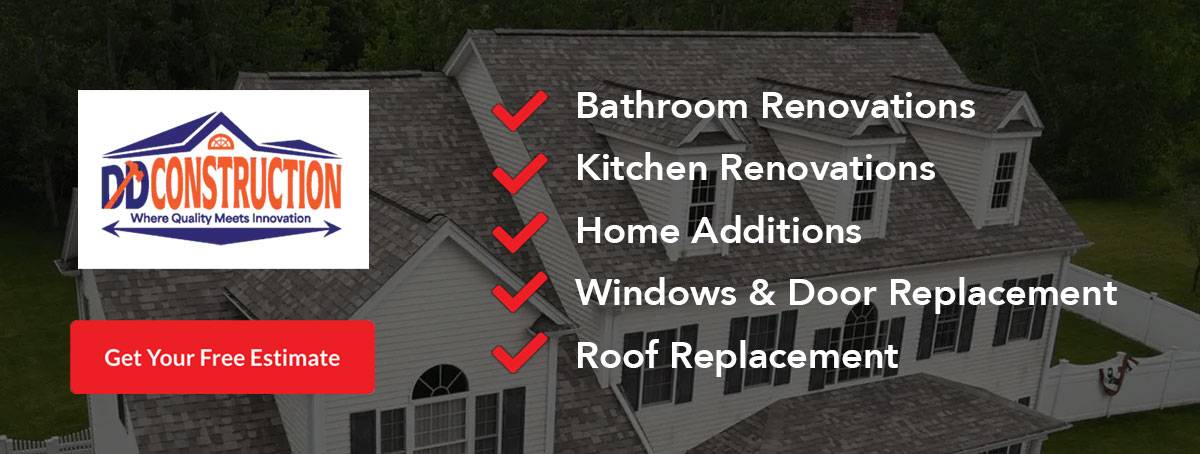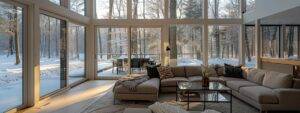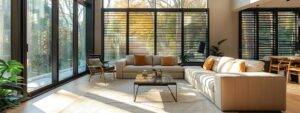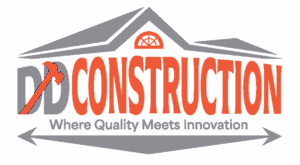Windows play a pivotal role in a home’s energy efficiency, aesthetics, and overall comfort—especially in Massachusetts where challenging weather and strict building codes demand high-performance solutions. Homeowners often face the choice between repairing aging windows or replacing them entirely. This article highlights common signs of window failure, explains how Massachusetts’ climate and regulations affect window performance, describes the window replacement process, and discusses how upgrading windows can save energy and reduce costs. It also covers when to consult a local contractor and outlines the long-term benefits of new windows.
Massachusetts experiences everything from heavy snowfall to humid heat, making well-functioning windows essential. Poor windows can lead to drafts, energy loss, and higher utility bills. When uneven temperatures, condensation, or structural damage occur, problems may quickly escalate into water damage or poor insulation. Recognizing these warning signs allows homeowners to act before repairs become more costly.
By addressing these signs early, homeowners can avoid increased energy costs and deteriorating indoor air quality while enhancing their home’s beauty and value. With proactive maintenance and timely replacement, windows become a strategic investment in long-term comfort and energy savings. The sections below provide a comprehensive roadmap for identifying and resolving window issues in Massachusetts.
What Are the Most Common Signs You Need Window Replacement?
Over time, windows show clear signs of malfunction. Homeowners may notice temperature inconsistencies, increased outdoor noise, and aesthetic changes. Common indicators include drafts, moisture between panes, difficulty operating windows, water damage, rising energy bills, and even fading furniture. These signals point to deteriorating windows that may soon require replacement.
How Do Drafts and Air Leaks Indicate Window Failure?
Drafts and air leaks are early signs that window seals have degraded. In Massachusetts’ cold winters and hot summers, weakened seals permit unwanted air infiltration, forcing heating and cooling systems to work harder. Energy Star-rated windows feature advanced weatherstripping that minimizes leakage, unlike older units that may allow up to 30% more air transfer. Upgrading to modern windows with Low-E coatings and insulated frames can reduce energy loss by as much as 25%, lower monthly utility bills, and contribute to reduced greenhouse gas emissions.
Why Is Condensation Between Window Panes a Warning Sign?
Condensation between glass panes indicates a failed insulating seal. When moisture penetrates double or triple glazing, the insulating gas (typically argon or krypton) escapes, reducing thermal efficiency. Visible fogging and even mold growth can occur, detracting from both the appearance and function of the window. In Massachusetts’ variable humidity, recurring condensation—not just a cosmetic issue but one that can lead to wood rot or corrosion—signals that replacement is necessary to restore proper insulation and performance.
What Does Difficulty Opening or Closing Windows Reveal?
If a window is hard to operate, it often means its mechanism or structure is failing. Repeated use and weather exposure can cause frames to warp or seals to deteriorate, resulting in misalignment and binding. This not only hampers ventilation and natural light but may also compromise home security. Modern replacement windows, often made from durable vinyl or fiberglass, offer smoother operation and improved security, restoring ease of use and ensuring better energy efficiency.
How Does Water Damage or Wood Rot Signal Replacement Needs?
Water damage and wood rot are severe indicators that windows require replacement. When water infiltrates the frame, it can cause peeling, warping, and decay—problems common in Massachusetts’ harsh winters and heavy precipitation. Mold, mildew, and persistent damp odors further emphasize the need for prompt action. Replacing affected windows with moisture-resistant materials like vinyl or fiberglass prevents further structural damage and protects the home’s integrity.
Can High Energy Bills Be a Sign of Window Problems?
A sudden increase in energy bills is often the first financial sign of failing windows. Inadequate windows let heat escape in winter and allow heat in during summer, forcing HVAC systems to run longer and work harder. Even a 10%–30% hike in energy use can indicate poor insulation. Upgrading to modern, energy-efficient windows reduces energy waste, enhances indoor comfort, and supports environmental initiatives through lower greenhouse gas emissions.
How Does Fading Furniture and Fabrics Relate to Window Issues?
Faded furniture and drapes may indicate that windows are no longer effectively filtering harmful UV rays. Outdated glass or deteriorated seals allow ultraviolet light to penetrate, gradually fading interior fabrics and finishes. Modern windows with advanced UV-blocking coatings can protect interior décor while maintaining energy efficiency. This indirect sign reinforces the overall benefits of timely window replacement in Massachusetts.
How Do Massachusetts Climate and Building Codes Affect Window Replacement Needs?
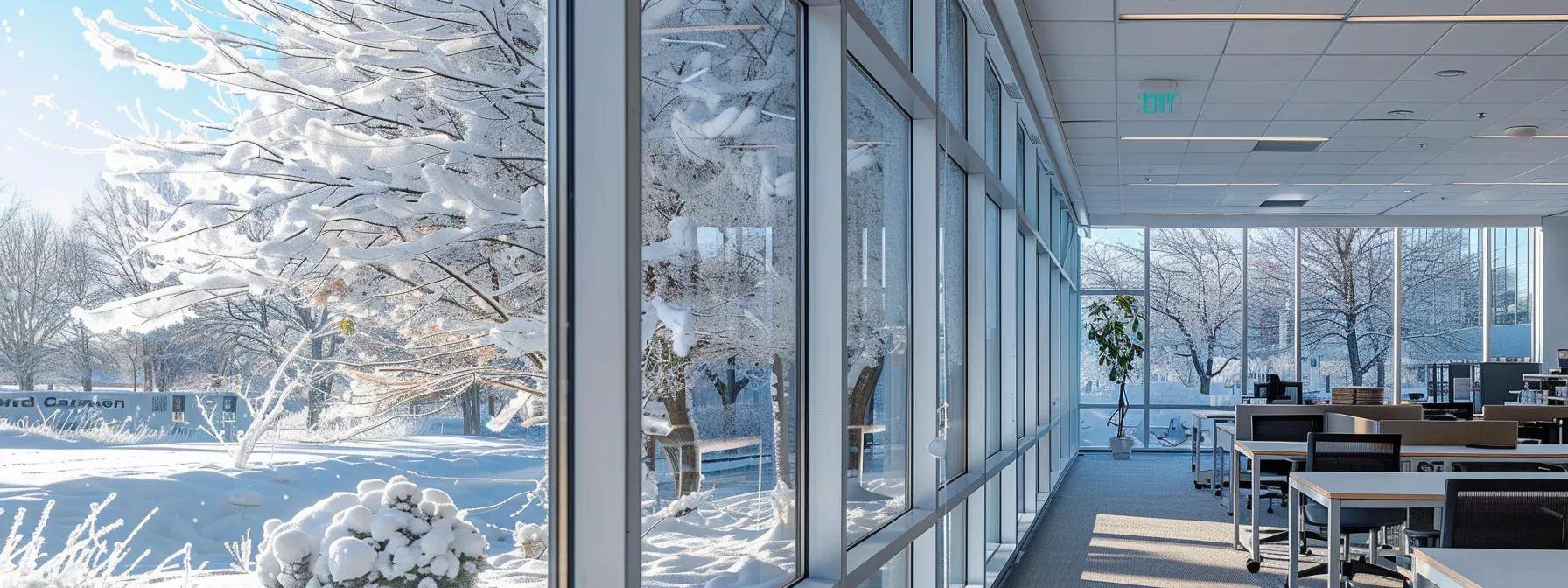
Massachusetts’ severe weather and rigorous building codes present unique challenges. Harsh winters, heavy snowfall, and humid summers demand windows that are durable and energy efficient. At the same time, state regulations require high-performance installations to ensure safety and energy conservation.
What Climate Challenges Impact Window Durability in Massachusetts?
The extreme climate in Massachusetts accelerates window deterioration. Freezing temperatures, heavy snowfall, and frequent freeze-thaw cycles can warp frames and compromise seals, while high winds and rain exacerbate these effects. Modern windows use triple-pane glass, low-emissivity coatings, and reinforced PVC or fiberglass frames to better withstand these conditions, ensuring proper insulation and reducing the risk of corrosion and rot.
How Do Massachusetts Building Codes Influence Window Replacement?
Building codes in Massachusetts set strict criteria for energy efficiency and safety. New replacement windows must meet specific standards for air leakage, thermal insulation, and safety glazing. Homeowners who upgrade to compliant windows not only improve indoor comfort but may also qualify for rebates and incentives. Adhering to these codes helps maintain property value and ensures structural integrity during harsh weather events.
Why Is Local Expertise Important for Massachusetts Window Replacement?
Local contractors possess essential expertise in identifying weather-related or code-specific issues. Their familiarity with Massachusetts’ climate and building regulations enables them to recommend the best window types and installation methods. Trusted professionals, like dd construction, ensure that the replacement process complies with local standards and often provide post-installation support and warranties, offering homeowners peace of mind and long-term savings.
Which Window Types and Styles Are Best for Massachusetts Homes?
Choosing the right window involves balancing energy efficiency, durability, and design preferences. Homeowners in Massachusetts often weigh materials like vinyl, wood, and fiberglass along with styles such as double-hung, casement, bay, and sliding windows. Each option offers unique benefits based on the architectural style and performance needs of the home.
What Are the Benefits of Vinyl, Wood, and Fiberglass Windows?
Vinyl windows are popular for their durability, low maintenance, and high energy efficiency; they require no painting and resist moisture well. Wood windows provide a classic aesthetic and natural insulation but demand more upkeep. Fiberglass windows deliver outstanding strength, low maintenance, and excellent durability under extreme weather conditions. For energy efficiency, vinyl and fiberglass generally outperform wood, especially when enhanced with modern insulating technologies such as Low-E glass and multi-chambered frames.
How Do Double-Hung, Casement, Bay, and Sliding Windows Compare?
Different operational styles impact functionality: • Double-hung windows feature movable top and bottom sashes for balanced ventilation and ease of cleaning. • Casement windows hinge on one side to create a tight seal, maximizing energy efficiency. • Bay windows project outward to add space and natural light, while sliding windows offer unobstructed views and are ideal for modern designs.
The choice depends on room function, aesthetic goals, and energy performance requirements. Traditional styles suit historic homes, whereas casement and sliding windows often serve modern residences with high performance expectations.
Which Window Materials Offer the Best Energy Efficiency in Massachusetts?
Energy efficiency is paramount in Massachusetts. Vinyl and fiberglass windows, when equipped with double or triple glazing, argon gas fills, and low-E coatings, offer excellent thermal performance with U-values as low as 0.20. Modern windows also incorporate insulated frames and thermal breaks to reduce energy loss further. For example, Energy Star certified windows not only lower energy bills but also help reduce greenhouse gas emissions, making them an ideal choice for environmentally conscious homeowners.
A comparison table below summarizes key metrics:
| Window Material | U-Value Range | Maintenance | Lifespan | Best Use Case |
|---|---|---|---|---|
| Vinyl | 0.20–0.30 | Low | 20–30 yrs | General replacement, modern homes |
| Fiberglass | 0.20–0.28 | Low | 30–40 yrs | High-performance upgrades |
| Wood | 0.30–0.40 | High | 20–30 yrs | Historic homes with classic style |
| Aluminum with Thermal Break | 0.25–0.35 | Moderate | 25–35 yrs | Commercial/residential hybrid |
What Is the Typical Window Replacement Process in Massachusetts?
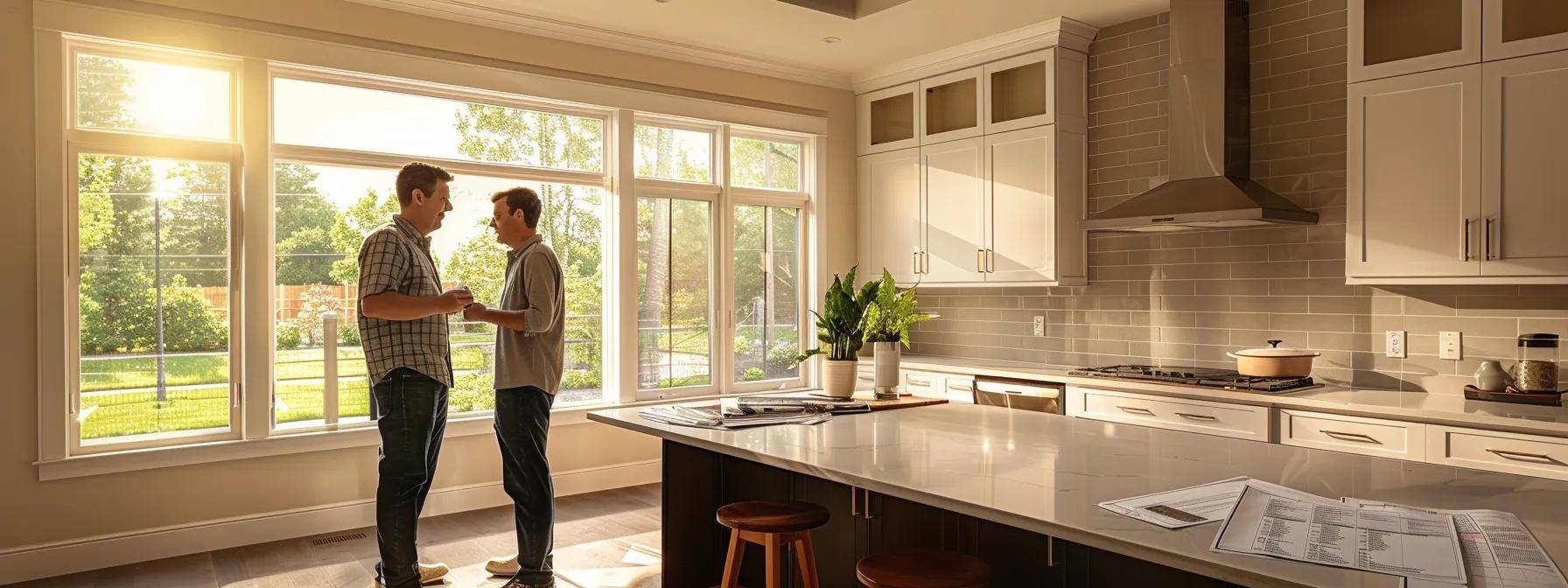
Understanding the replacement process helps set proper expectations regarding cost and timeline. In Massachusetts, the process begins with an initial consultation and assessment, followed by choosing and installing the new windows—all while meeting rigorous local building codes.
How Does the Initial Consultation and Assessment Work?
A professional consultation evaluates current window condition and overall home energy efficiency. The contractor checks for drafts, condensation, and structural damage, measures accurately, and may use thermal imaging to detect hidden air leaks. This assessment forms the basis of a detailed report with recommendations and cost estimates, setting the stage for a smooth replacement process.
What Should You Consider When Selecting New Windows?
Key considerations include material quality, energy ratings, style, warranty, and overall cost. Windows with high insulation ratings, low U-values, and features like double or triple glazing are recommended given Massachusetts’ strict energy requirements. Homeowners should balance modern performance with the home’s aesthetic, often relying on professional advice to find the best match.
What Are the Key Steps in Professional Window Installation?
Professional installation involves: • Carefully removing old windows to prevent additional damage. • Verifying measurements and fitting new windows into the openings. • Installing proper insulation, flashing, and weatherstripping to seal gaps and meet building codes. • Conducting a thorough cleanup and final inspection to ensure safety and optimal performance.
By following these steps, installers like DD Construction enhance both the energy efficiency and curb appeal of the home.
What Post-Installation Support Should You Expect?
After installation, reputable contractors provide post-installation support including routine maintenance checks, warranty services, and detailed documentation of the new system. Many offer follow-up visits to ensure windows perform correctly and address any issues promptly. This ongoing support helps to prolong window longevity and maintain energy efficiency.
How Can Window Replacement Save Energy and Reduce Costs in Massachusetts?
Upgrading to modern windows can significantly cut energy costs by reducing the load on heating and cooling systems. High-performance windows help maintain stable indoor temperatures, lowering monthly utility bills and contributing to overall home comfort. The financial benefits, along with increased property value, make window replacement a sound investment.
What Energy-Efficient Features Should You Look for in New Windows?
Look for windows that include: • Double or triple glazing for improved insulation. • Low-E coatings to reflect infrared heat while allowing natural light. • Gas fills like argon or krypton to boost thermal performance. • Insulated frames that reduce thermal bridging.
These features, commonly found in Energy Star-rated products, not only lower energy demands but also reduce greenhouse gas emissions.
How Do Window Replacements Lower Your Energy Bills?
Modern windows prevent air leakage and drastically reduce heat transfer, which lowers the energy required for heating in winter and cooling in summer. By sealing gaps and enhancing insulation, these windows can reduce energy loss by up to 25%. Homeowners often recoup their initial investment through lower utility bills—and with additional rebates from programs like Mass Save, the savings are even greater.
An illustrative comparison:
| Feature | Benefit | Example Application |
|---|---|---|
| Double/Triple Glazing | Reduces heat loss/gain | Older single-pane windows |
| Low-E Coating | Minimizes UV and infrared escape | Homes facing extreme temperatures |
| Gas Fills | Enhances insulation | Energy Star-rated high-performance windows |
| Insulated Frames | Prevents thermal bridging | Historic home replacements |
Are There Government Incentives or Rebates for Window Replacement in Massachusetts?
Massachusetts offers rebates and incentive programs, such as those from Mass Save, to help reduce the upfront cost of energy-efficient window replacements. These programs reward homeowners for meeting specific energy performance standards and help offset both installation and long-term maintenance expenses. Additional federal tax credits may further improve cost-effectiveness, underscoring the state’s commitment to sustainable home improvements.
When Should You Contact a Massachusetts Window Replacement Contractor?
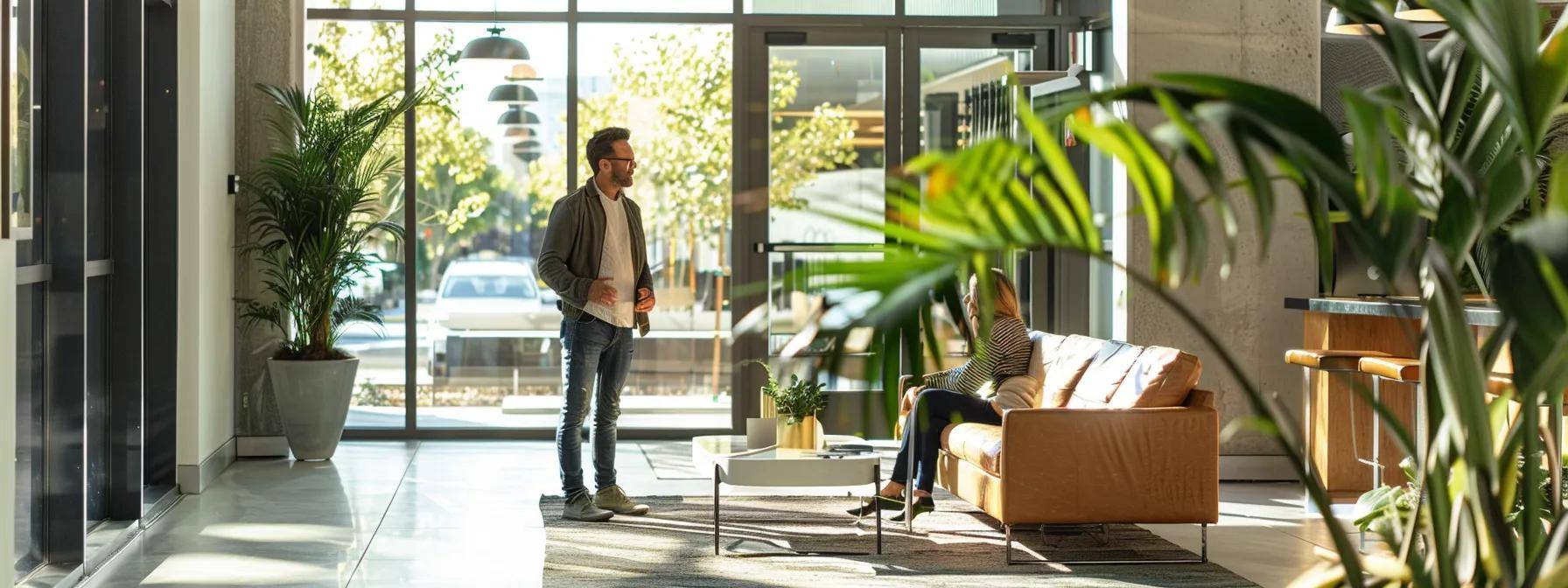
Early intervention is key. Homeowners who notice any signs of window failure—such as drafts, condensation, difficulty operating windows, or visible damage—should contact a professional immediately. Prompt action minimizes further damage and energy waste while reducing overall repair costs.
How to Choose a Reliable Local Window Replacement Company?
Selecting the right contractor involves researching reputation, certifications, warranty offers, and customer testimonials. A reliable company like DD Construction will demonstrate expertise in local building codes and provide transparent, written estimates. Checking credentials and previous work ensures that the contractor will deliver high-quality, efficient window replacements that suit Massachusetts’ unique climate.
What Questions Should You Ask Before Hiring a Contractor?
Before hiring, ask about: • The recommended window models and materials for your home. • The installation process and timeline. • Cost breakdowns, including any potential hidden fees. • Warranty terms and post-installation support. • Their experience with similar projects and compliance with local building codes.
Clear answers to these questions indicate a contractor’s professionalism and commitment to quality.
How Can You Get a Free Window Replacement Quote in Massachusetts?
Many companies offer free on-site evaluations to create detailed, no-obligation quotes. Taking advantage of these offers allows homeowners to compare services, understand costs, and plan budgets more effectively. Free quotes also open a dialogue with experts who can provide tailored advice on energy efficiency and long-term benefits.
What Are the Long-Term Benefits of Replacing Your Windows in Massachusetts?
Upgrading your windows offers enduring benefits. New windows improve home comfort and aesthetics, boost property value, protect interior furnishings, and enhance security. In a competitive market like Massachusetts, energy-efficient windows are a valuable investment that pays dividends over time.
How Does Window Replacement Improve Home Comfort and Aesthetics?
Modern windows ensure a better seal against outdoor elements, reducing drafts and external noise while stabilizing indoor temperatures. The visual upgrade, with sleek and updated designs, immediately boosts curb appeal and overall satisfaction. Additionally, improved UV protection helps preserve interior furnishings, contributing to a consistently comfortable and attractive home environment.
Can New Windows Increase Your Property Value?
Energy-efficient window upgrades are one of the most cost-effective improvements, often yielding high returns on investment. Prospective buyers value modern windows for lower utility bills, improved comfort, and enhanced safety features. These factors not only boost appraisal values but also accelerate the home-selling process, making properties with updated windows more attractive in Massachusetts’ competitive market.
How Does Window Replacement Reduce Noise and Enhance Security?
New window installations reduce external noise through better sealing and advanced insulating materials. Furthermore, modern windows are designed with multi-point locking systems, tempered or laminated glass, and durable frames that significantly enhance home security. Together, these features help create a quieter, safer, and more energy-efficient home environment.
Frequently Asked Questions
Q: What are the most urgent signs that my windows need replacement? A: Urgent signs include persistent drafts or air leaks, condensation between window panes, difficulty in opening or closing windows, and visible water damage or wood rot. These indicate deteriorated seals and possible structural damage. Immediate replacement prevents further energy loss and costly repairs.
Q: How does Massachusetts’ climate affect the lifespan of windows? A: Harsh winters, humid summers, and frequent freeze-thaw cycles accelerate window wear. Prolonged exposure to moisture and intense sunlight can cause materials to warp or decay, reducing insulating performance and prompting the need for durable, energy-efficient replacements.
Q: Are high energy bills a reliable indicator of window failure? A: Yes. When windows lose their insulating properties, HVAC systems must work harder, leading to increased energy bills. A sudden rise in costs can signal that windows are leaking air and need replacement.
Q: What benefits do energy-efficient windows offer beyond reducing energy bills? A: Besides lowering utility costs, energy-efficient windows improve indoor comfort, reduce external noise, protect against UV damage, and enhance property value—all while lowering greenhouse gas emissions.
Q: How do local rebates and incentives help with the cost of window replacement? A: Programs like Mass Save offer financial assistance based on a window’s energy performance, offsetting upfront costs and reducing long-term maintenance and energy expenses. These incentives promote environmentally friendly home improvements.
Q: How can I determine which window style is best for my home? A: Consider aesthetics, functionality, energy efficiency, and architectural design. For example, double-hung windows offer versatility, while casement windows provide superior sealing. Consulting with local experts helps match windows with your specific needs and building codes.
Q: What maintenance is required after window replacement? A: Routine maintenance is minimal. It generally involves periodic cleaning of glass and frames, checking weatherstripping for wear, and ensuring that moving parts operate smoothly. Annual inspections can help catch minor issues early, ensuring optimal long-term performance.

